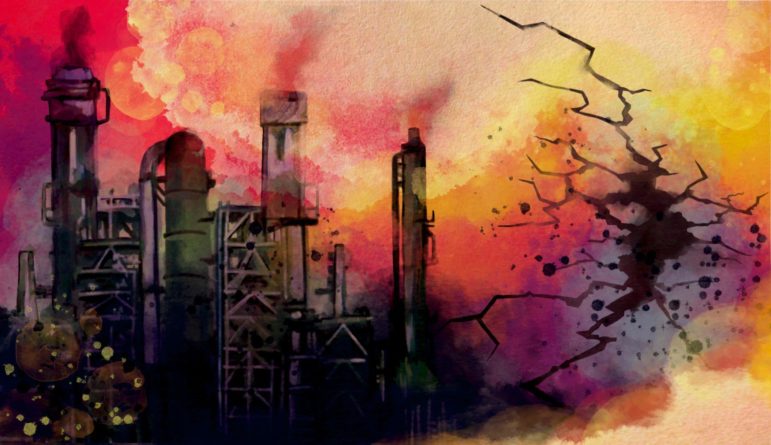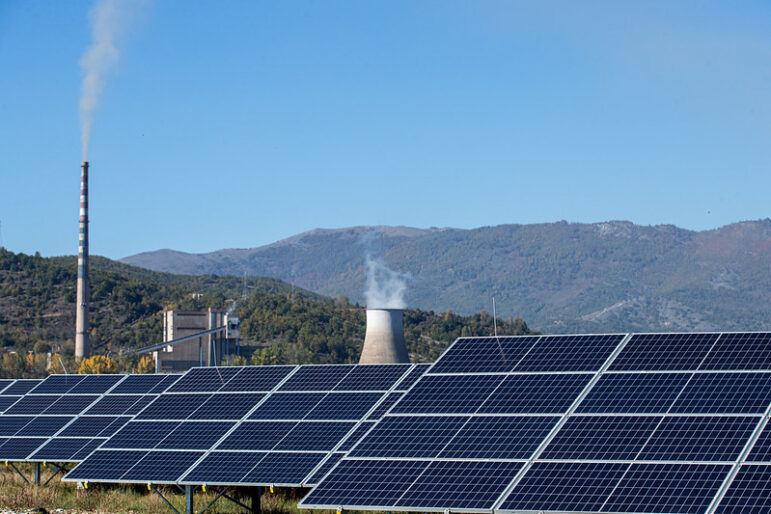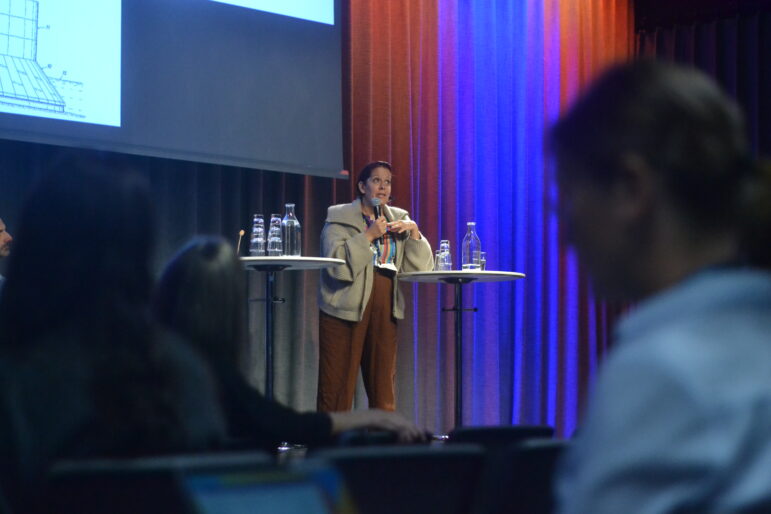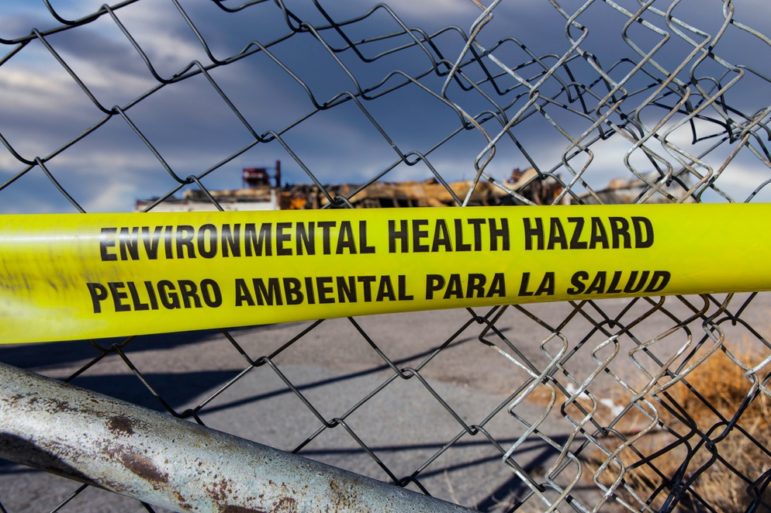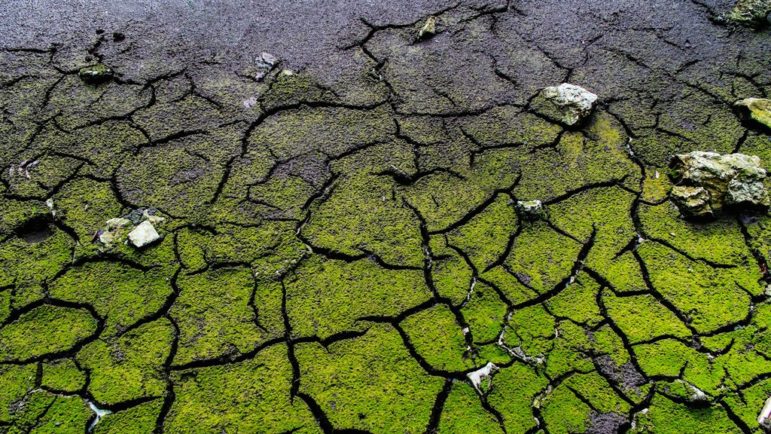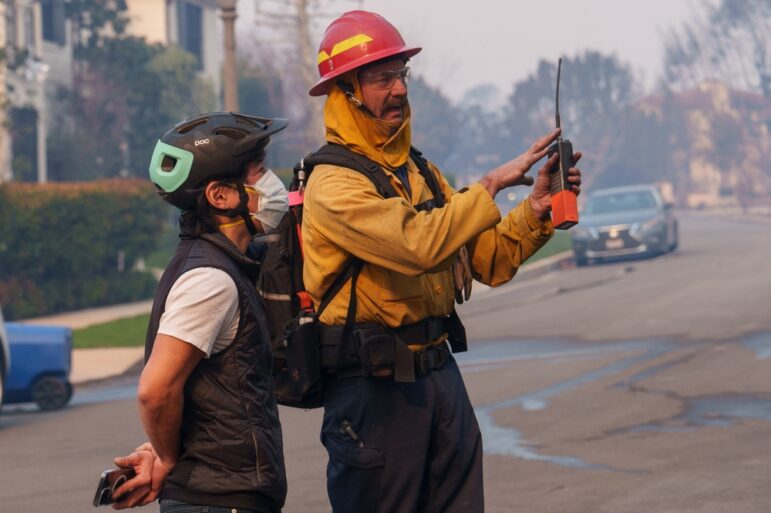
The Investigative Agenda for Climate Change Journalism
Read this article in
At the 13th Global Investigative Journalism Conference, GIJN convened a one-day meeting of 80 climate change journalists and experts from 35 countries to discuss the role of investigative journalism in climate crisis reporting. Reporting the causes and effects of global warming in a multitude of ways and for a wide range of audiences is critical, and as humanity moves closer to the brink of a climate disaster it is essential that journalists are given the time, skills, and tools to hold officials accountable, be they in government or in the private sector. The deterioration of the climate can be slowed down but instead it is accelerating. Who is responsible? Accountability is at the heart of investigative or watchdog journalism.
Below is the executive summary and introduction to our report on that meeting. The full report (pdf version) is also available.
Executive Summary
The OBJECTIVES of the meeting were:
- To share perspectives on the top priorities for investigative journalism on climate change;
- To discuss how investigations into the fossil fuel industry can break new ground;
- To consider how to improve in-depth journalism that holds governments to account;
- To address how to facilitate more collaboration among investigative journalists, particularly in the Global South;
- To make recommendations to further support watchdog journalism on climate issues.
At the meeting all of the objectives were tackled, and PRIORITIES for accountability-focused climate change journalism emerged, including:
- The fossil fuel industry and its vast network of enablers and related industries;
- Government policies and promises the world over and who is influencing them;
- Climate change finance in all its complex forms;
- Vulnerable communities;
- The clean energy transition — winners and losers;
- Climate change as a complex, interrelated global crisis.
Significant CHALLENGES remain, including:
- Data, documents, and human sources are hard to obtain;
- The underlying structures of power continue to avoid transparency;
- The global climate crisis is complex and affects every beat;
- Capacity issues are substantial across the field but especially in the Global South;
- New collaborative models are needed that link cause and effect;
- More accountability reporting is necessary, with more compelling storytelling;
- Public engagement is critical: climate news avoidance and distrust in climate news are significant;
- Dis- and misinformation are widespread.
Participants identified a range of SOLUTIONS that would strengthen and support investigative journalism on climate change, including:
- Increased training, mentoring, staffing, and resources to build capacity and expertise within news organizations;
- Improved access to relevant data and expertise;
- Global and regional initiatives that are complementary and increase impact;
- Better platforms to facilitate information sharing and cross-border collaborations, new forms of collaboration particularly between news organizations in the Global South and North;
- Further discussion and thinking about public engagement strategies.
Introduction
Despite progress on the development of affordable green energy, global greenhouse gas emissions are rising inexorably, according to one of the world’s leading authorities, the Intergovernmental Panel on Climate Change. Climate change is global, but the causes are not: fossil fuels — largely coal, oil, and gas — account for more than 75% of global greenhouse gasses. Despite the climate crisis, 96% of the oil and gas industry is expanding, according to this 2022 report. This expansion is occurring even though many governments and corporations around the world have made net-zero and other climate change mitigation pledges.
Vulnerable communities that contribute little to global emissions bear the brunt of climate change’s impact, suffering from: sea level rise, reduced agricultural yields, more intense wildfires, severe storms, growing poverty, hunger, and displacement, to name a few. The promises and pledges to assist with mitigation and adaptation remain mostly that, mere empty promises. Adding to this, climate change-related misinformation and disinformation are ubiquitous and increasingly sophisticated. The consequences for the whole planet are dire. However, although climate change is getting worse, it is not yet irreversible.
Thousands of journalists around the world are reporting on climate change and its impact, and multiple networks have been established to further such reporting. This work is vital to inform and engage the public, and to challenge those in power who proverbially fiddle while the earth literally burns. Accountability is at the core of investigative journalism and there is a critical need for systematic, in-depth, original reporting on climate change in all its complexity. This includes the work of tracking a new set of economic interests that are developing as the world moves fitfully toward a lower carbon economy. How best then can investigative journalists focus on corporate and government accountability?
To find out, the Global Investigative Journalism Network convened a workshop, The Investigative Agenda for Climate Change Journalism, a day-long meeting of the majority of investigative journalism networks, top names in the world of climate change journalism, and reporters and researchers working on the topic from across the world. Eighty people from 35 countries gathered to share perspectives on the top priorities for investigative journalism on climate change.
With support from Journalismfund Europe and others, the meeting was held as a pre-conference event the day before the Global Investigative Journalism Conference in Gothenburg, Sweden, on September 19, 2023.
The discussions were structured around investigative priorities and challenges, with special focus on five topics: the fossil fuel industry, government accountability, climate finance, climate impacts, and supply chains. Each session provided an overview, case studies, and discussion. The participants then split into groups and the meeting concluded with reports back from the breakout discussions.
The meeting was chaired by Sheila Coronel, veteran investigative journalist, Director of the Toni Stabile Center for Investigative Journalism at Columbia Journalism School, and founder and current board member of the Philippine Center for Investigative Journalism.
To encourage frank discussion, the meeting observed Chatham House Rule, meaning that the day’s discussion was, in journalism parlance, “on background” — comments made cannot be attributed to an individual, nor an individual’s identity revealed. Those identified in this report have provided permission to use their names and quoted remarks.
After the session, GIJN circulated an anonymous survey to assess the meeting and gather information for future activity. Among the survey’s findings, 86% of respondents found the session “very” or “extremely” useful and 90% said they would like to continue the conversation. Ideas for additional connections included creation of online interest groups for more journalist-to-journalist networking, discussion, and problem-solving. One day was too short. But it was an energizing start to what I hope will be a collaborative program in the future.
What follows are key points made during the day, which began with isolating key problems, followed by identifying challenges, and then recommendations.
Finally, I would like to offer my huge gratitude to everyone who helped to make the workshop and this report possible: including Journalismfund Europe, Sheila Coronel, the more than 80 fantastic journalists and experts who came from all over the world to share their insights and advice, and my colleagues at GIJN, in particular Toby McIntosh, Andrea Romanos, and GIJN’s former Executive Director David Kaplan. Also huge thanks to Deborah Nelson, journalist extraordinaire, who has co-authored this report with Toby and me.
 Anne Koch worked as a broadcast journalist and executive for more than 20 years, mostly for the BBC, before becoming a director at anti-corruption NGO Transparency International. Her award-winning career in BBC journalism included service as deputy director of the English World Service, executive editor of the BBC’s flagship radio news and current affairs programs and editor of the World Tonight. She has produced or edited over a hundred documentaries and worked as a producer on BBC Radio 4’s investigative journalism program File on Four. At TI, she served as director of Europe and Central Asia, overseeing nearly 50 independent chapters.
Anne Koch worked as a broadcast journalist and executive for more than 20 years, mostly for the BBC, before becoming a director at anti-corruption NGO Transparency International. Her award-winning career in BBC journalism included service as deputy director of the English World Service, executive editor of the BBC’s flagship radio news and current affairs programs and editor of the World Tonight. She has produced or edited over a hundred documentaries and worked as a producer on BBC Radio 4’s investigative journalism program File on Four. At TI, she served as director of Europe and Central Asia, overseeing nearly 50 independent chapters.

